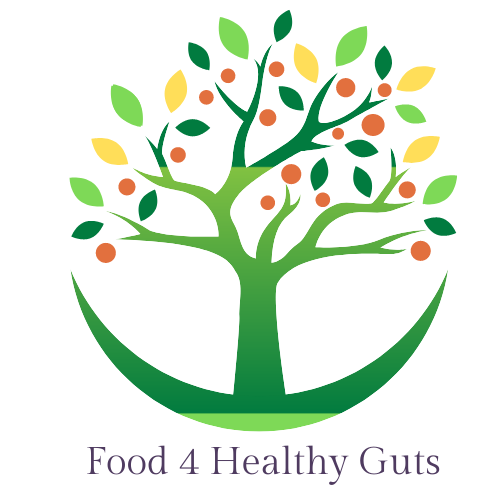Indigestion and heartburn: Is this one of your IBS symptoms?
Are you someone who knows what is going to cause the burning of indigestion and heartburn? or does it creep up on you?
The NHS definition of indigestion is
• heartburn – a painful burning feeling in the chest, often after eating
• feeling full and bloated
• feeling sick
• burping and farting
• bringing up food or bitter-tasting fluids into your mouth
And they have some suggestions
• cut down on tea, coffee, cola or alcohol
• raise your head and shoulders up when in bed – this can stop stomach acid from coming up while you sleep
• lose weight if you're overweight
• do not eat 3 to 4 hours before going to bed
• do not have rich, spicy or fatty foods
• do not take ibuprofen or aspirin – this can make indigestion worse
• do not smoke
And they advise taking antacids or seeing your GP for a proton pump inhibitor i.e omeprazole(1)
Some of the NHS suggestions make sense, cutting down on caffeine and alcohol reduces the production of cortisol that slows digestion. Not eating close to going to bed, will allow for the food to be digested properly.
Losing weight, I guess that depends on how you decide to lose weight.
Not eating rich, spicy or fatty foods, what if they are your cultural preference?
Are these suggestions easy?
If it really was this easy why do clients come to see me with heartburn and indigestion, Why do 30%-40% of the U.K population still suffer? (2)
Could it be because the individual's root cause is not being addressed?
From a root cause perspective, what is most likely to be beneficial? Firstly what can be the root causes of indigestion?
A food allergy or intolerance, possibly to dairy, wheat, soy or eggs (3)
Not making enough bile; to digest fatty foods (4)
Dysbiosis, More non-beneficial than beneficial bacteria, possibly moving into the small intestines (5)
A H-pylori infection; causes the stomach to become less acidic and research now associates H-pylori with stomach ulcers. (6)
Not enough stomach acid; The food you eat ferments in the stomach causing the lower oesophageal sphincter to flap releasing acid into the oesophagus and throat (7)
Eating when stressed; You are not digesting food properly, again leading to fermentation in the stomach.
Not chewing; Larger particles of food can be left undigested, another cause of fermentation
Eating a high sugar, High processed food diet; Disrupts the microbiome
Not so straightforward …..
What can you do?
Reducing the amount of processed foods and high-carb foods being consumed will help to balance the microbiome and to lose weight.
A low-carb lifestyle encourages more over-the-ground vegetables that promote bile production helping to break down the fat, and as an additional benefit promoting the absorption of fat-dependent nutrients.
Taking your time to eat, sitting somewhere quiet, and chewing, promotes your parasympathetic ( rest and digest) nervous system to work properly. You then produce enough stomach acid to digest the thoroughly chewed food, so that instead of sitting in your stomach fermenting, it is slowly released into your intestines to slowly provide you with energy
Try incorporating time restrictive eating into your daily routine. When we eat within an 8-10 hour window we give our bodies time to properly digest food before we go to bed.
While you are switching and changing your diet what will support your digestion?
Some food such as spinach, kale, brussels sprouts and broccoli, are bile-promoting foods (8) , but you can also supplement with digestive enzymes and ox bile to support the digestive process.
A good quality probiotic will support your gut health, while you increase the amount of fibre and prebiotic foods to encourage a balanced microbiome
A supplement to improve the mucus membrane will start to repair the gut lining if you are showing symptoms related to food intolerances.
Calming teas such as peppermint, fennel, and ginger will help to lessen some of the symptoms
What can I do for you?
As well as suggesting the appropriate supplements, I can order a food allergy and intolerance test to pinpoint those foods that may be impacting on you.
I can devise a diet plan that will encourage you to make the changes necessary to support your digestion naturally. It is not always easy to make changes on your own, sometimes you need someone in your corner, supporting you with sensible practical advice
What can you do?
You should check with your GP that you have not got an H-pylori infection. The GP should also check to make sure there are no other issues that could be the cause of your indigestion.
If you occasionally suffer, and while you work on changing your diet, anti-acid will take some of the pain away. But they are not a long-term solution, because they are just adding a plaster, they are not resolving the root causes
If you would like support with your indigestion or other IBS symptoms, then please book your free 30-minute consultation, and we can discuss a plan for you
https://p.bttr.to/3PYMiMF
Jacxx
Reference
1 https://www.nhs.uk/conditions/indigestion/
2 https://www.actionagainstheartburn.org.uk/
3 https://www.allergychoices.com/blog/could-your-heartburn-symptoms-be-allergy
4 https://metabolichealing.com/bile-deficiency-heartburn-poor-digestion-toxicity
5 doi: 10.21037/jtd.2019.05.82
6 https://gutscharity.org.uk/advice-and-information/conditions/helicobacter-pylori/
7 https://my.clevelandclinic.org/health/diseases/23392-hypochlorhydria#
8 DOI:10.1016/j.foodchem.2005.12.020
